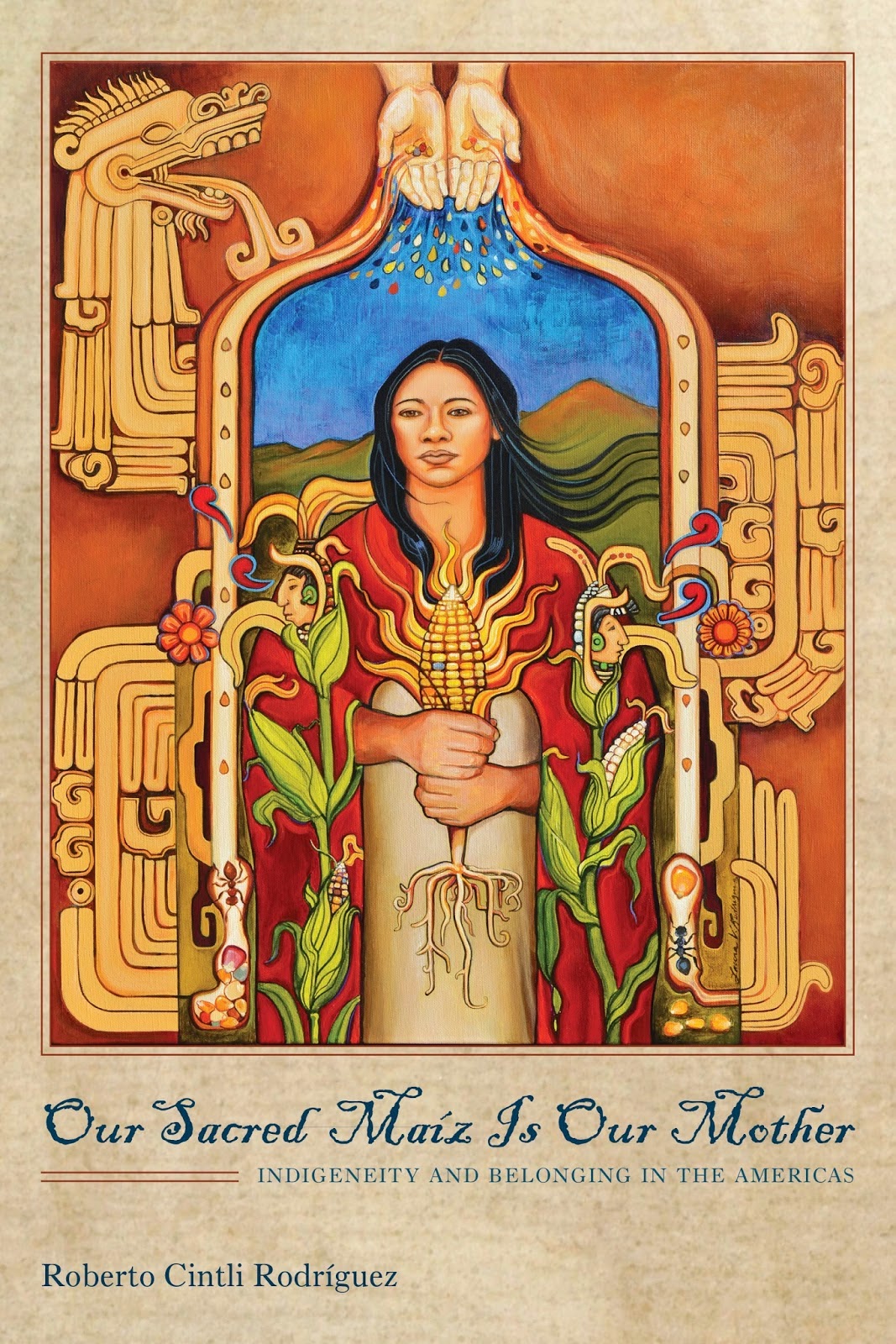Our Sacred Maíz is Our Mother
Our Sacred Maíz Is Our Mother changes the way we look at Maíz/Corn and Mexican Americans. Not so much peoples created as a result of war or invasion, they are people of the corn, connected through a seven-thousand-year old maíz culture to other Indigenous inhabitants of the continent. Using corn as the framework for discussing broader issues of knowledge production and history of belonging, the talk will look at how corn was included in codices and Mayan texts, how it was discussed by elders, and how it is represented in theater and stories. It will also consider the impact that genetically-modified corn (GMO's) have had on Mexican indigenous communities and the broader Mexican economy twenty years into the North American Free Trade Agreement (NAFTA).
Rodriguez brings together scholarly and traditional (elder) knowledge about the long history of maíz/corn cultivation and culture, its roots in Mesoamerica, and its living relationship to Indigenous peoples throughout the continent, including Mexicans and Central Americans now living in the United States. The author argues that a continued connection to maíz culture challenges the social exclusion and discrimination that frames migrants as outsiders and gives them a sense of belonging not encapsulated in the idea of citizenship. The "hidden transcripts" of corn in everyday culture—art, song, stories, dance, and cuisine (maíz-based foods like the tortilla)—have nurtured, even across centuries of colonialism, the living maíz culture of ancient knowledge.
Dr. Roberto Cintli Rodriguez
Roberto (Dr. Cintli) Rodriguez, is an assistant professor at the Mexican American & Raza Studies Department at the University of Arizona. He is a longtime-award-winning journalist/columnist who received his Ph.D. in Mass Communications in 2008, at the University of Wisconsin at Madison. He is the author of Justice: A Question of Race, a book that chronicles his 2 police brutality trials. He also co-produced with Patrisia Gonzales, Amoxtli San Ce Tojuan, a documentary on origins and migrations. His most recent book, Our Sacred Maíz Is Our Mother: Indigeneity and Belonging in the Americas, is an examination of the 7,000 year history of maiz cultivation in the Americas, and the role of origin and migration stories and oral traditions focusing on maiz among various Indigenous peoples, including Mexican and Central American peoples.
Event Details:
Date: 3/06/15
Time: 12:00 p.m. - 2:00 p.m.
Location: GMCS 310
Faculty Leader:
Dr. Roberto D. Hernandez
Chicana/o Studies
